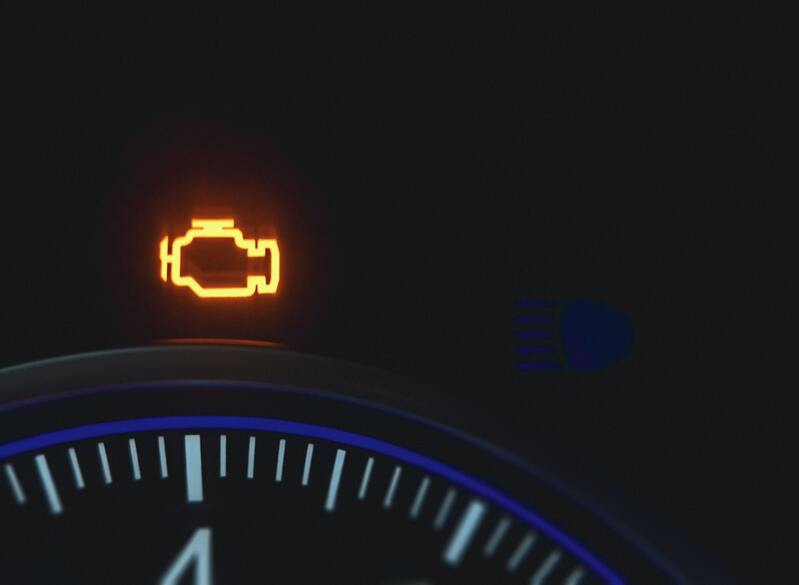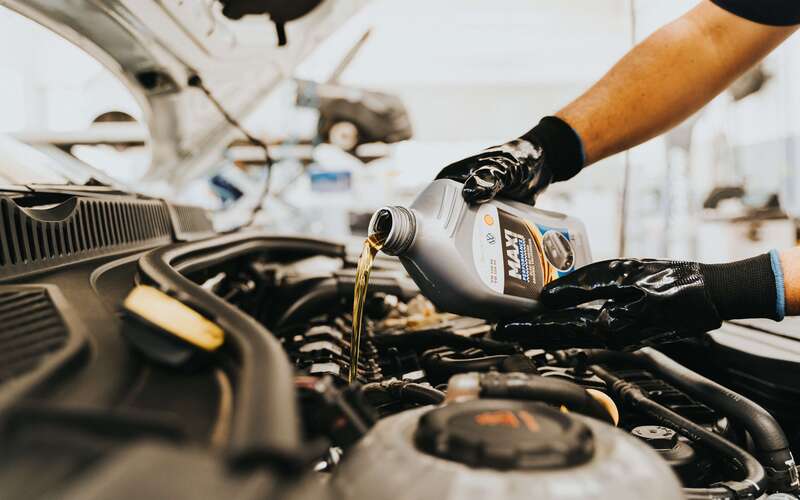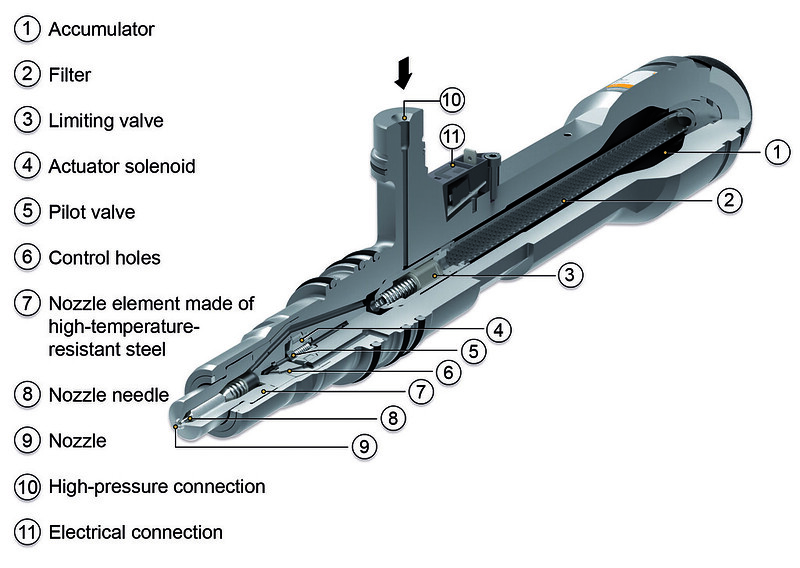Is your vehicle having trouble starting? Or is it running roughly when it starts? There’s a good chance you have a problem with your car’s fuel injectors.
Fuel injectors are crucial components of your vehicle’s engine, and when they go bad, they can lead to all sorts of problems. In this blog post, we’ll go over some of the most common symptoms of bad fuel injectors so you can be on the lookout for them. If you suspect your fuel injectors may be going bad, don’t hesitate to take your vehicle to a mechanic for diagnosis and repairs. The problem will only get worse if ignored, and it could eventually lead to engine failure.
Common Bad Fuel Injector Symptoms
Below are the most common fuel injector symptoms that you must be aware of. Let’s have a look at these bad injector symptoms:
1. Rough Idle:
Experiencing a rough or irregular idle in your car can be frustrating. However, it may be a sign of a problem with your fuel injectors. This crucial system is responsible for distributing the correct amount of fuel to the engine, and if it’s not working properly, it can lead to a rough idle. In some cases, debris buildup on the injectors can cause them to malfunction and result in the engine running unevenly. It’s important to have such fuel injectors checked by a trained professional as soon as possible to avoid potential damage to your engine. Otherwise, it could lead to long-term problems and costly repairs down the road.
2. Engine Vibrates:
Vibrations caused by a bad fuel injector can often be felt in the steering wheel and throughout the vehicle’s body. There are a few potential reasons for this issue, including clogged injectors or faulty electrical connections. These problems can result in poor fuel distribution and an uneven combustion process, leading to vibrating engines and reduced performance. Regular maintenance and professional diagnostics can help prevent these issues and ensure smooth engine operation.
3. Engine Misfires:
This is another clogged fuel injector symptom. A clogged or malfunctioning fuel injector can cause an inadequate amount of fuel to enter the combustion chamber. This results in incomplete combustion and can lead to the engine misfiring. Fortunately, this issue can often be easily resolved by cleaning or replacing the faulty injector. However, it’s important to address this problem as soon as you notice it, as ignoring it could result in larger and costlier problems down the road.
4. Check Engine Light Turns On:

When your car’s check engine light turns on, it could be a warning sign of a faulty fuel injector. The fuel injector is responsible for delivering the proper amount of fuel to the engine. If it’s not functioning properly, it can lead to excessive emissions and reduced fuel efficiency. Luckily, there are steps you can take to prevent this issue from occurring. Regularly changing your air filter and fuel filter can help prevent debris from clogging the injector. Also, make sure to use high-quality gasoline and have your injectors serviced regularly as part of your car’s maintenance routine.
5. Fuel Leak:

If the seals on the injector are worn or broken, gasoline can escape and leak onto other components in your engine. This not only leads to a loss of fuel efficiency but can also be a fire hazard. Even a small leak can result in significant damage to your vehicle’s engine. Therefore always pay attention to any unusual smells or puddles under your car, and have a mechanic inspect and replace any faulty injectors as soon as possible. In addition, regularly scheduled maintenance can help identify and prevent injector leakages before they become serious problems.
6. Bad Fuel Odor:

One of the telltale signs of a problematic fuel injector is a strong, unpleasant odor coming from your car’s engine. This odor is caused by leaking fuel, which can often be traced back to faulty injectors. So if you’re noticing a bad smell coming from your car’s engine, it’s a good idea to have your fuel injectors checked as soon as possible. Don’t wait until it’s too late – deal with that foul odor by getting your fuel injectors checked out.
7. Engine Surge:
Maintaining a healthy engine is crucial for smooth driving. One common issue that can arise is engine surge, which is when the engine abruptly speeds up and slows down on its own. One potential culprit behind this is faulty fuel injectors. When the injectors aren’t functioning properly, they may not evenly distribute fuel to the engine, leading to this surge in power. It’s important to have your vehicle regularly checked for these issues to ensure optimal performance and prevent damage to the engine in the long run.
8. Bad Fuel Economy:
Another common sign of a bad fuel injector is poor fuel economy. If your car seems to be using more gas than usual, it could be a sign that the fuel injector is not properly regulating the flow of gasoline into the engine. In addition to impacting your wallet with higher gas bills, this issue can also result in increased emissions and further damage to your car’s engine. If you suspect your fuel injector may be to blame for your decrease in mileage, it’s important to have it checked out by a professional as soon as possible.
9. Failed Emissions Test:
One common indication of a faulty fuel injector is the failure of an emissions test. This occurs because the injector is not properly regulating the mixture of fuel and air in the engine, causing it to burn inefficiently and release more harmful pollutants into the atmosphere. If your vehicle fails an emissions test, it may be a symptom that you need to have your fuel injector checked and potentially replaced. Ignoring this issue not only harms the environment but can also lead to expensive repairs down the road.
How Does The Fuel Injector Work?

Have you ever wondered why some cars run smoothly while others seem to sputter and choke? The key to a car’s performance lies in its fuel injector. The injector is responsible for delivering the precise amount of fuel to the engine, mixing it with air before it enters the combustion chamber.
In older cars, this mixture was controlled by a carburetor. However, in modern cars, the injector is controlled by the car’s electronic control unit, which opens and closes it at precise times to ensure efficient fuel consumption and performance. Modern fuel injectors work by using electromagnetic pulses to open a small valve, allowing the pressurized fuel to flow into the engine at just the right moment. This process helps optimize engine performance and reduce pollution emissions. Regular maintenance and tune-ups can help ensure that your fuel injector continues to work smoothly.
How Can You Clean a Fuel Injectors?
Are you noticing decreased fuel efficiency or engine performance? It could be time to clean your fuel injector.
- The first step is to use a fuel system cleaner, which can be added directly to the gas tank.
- Next, let the vehicle run for about fifteen minutes or drive for roughly thirty minutes to allow the cleaner to reach the injector.
- Afterward, disconnect the negative battery cable and locate the injector. Using a specialized brush or cloth, clean any buildup or debris from the injector.
- Finally, reattach the negative battery cable and start your car to ensure proper functioning.
Regularly cleaning your fuel injector can improve engine performance and increase gas mileage. It’s a quick and easy fix that can make a big difference in how your vehicle runs.
How Much Does it Cost to Fix a Fuel Injector?
Fixing a faulty fuel injector can be expensive. Diagnosing the specific issue can require specialized equipment, and the replacement of parts costs a lot. In some cases, it may be more cost-effective to replace the entire fuel injector system instead of trying to fix individual components. However, regular maintenance can help prevent issues with your fuel injector and save you money in the long run. So make sure to follow your car’s recommended schedule for inspections and tune-ups.
Final thoughts,
Symptoms of a bad fuel injector can vary, but if you experience any of the following issues it’s best to take your car in for service. Strange noises, decreased gas mileage, hesitation or sputtering when starting up, and black smoke coming from the tailpipe are all signs that there may be something wrong with your fuel injectors. It’s important to get them checked out as soon as possible to avoid more serious damage and costly repairs. Have you experienced any of these symptoms? If so, don’t hesitate to bring your car in for service. Professional experts can help diagnose and repair the issue quickly and easily.
FAQs
1. What does a bad injector sound like?
A bad injector causes a rough idle noise. If your car’s fuel injector continues sounding like this, the possible reason can be a faulty spark plug, dirty air filter, or clogged injector.
2. How often should I check the fuel injector?
There’s no definitive answer to this question. Some people say you should check your fuel injectors every time you do a tune-up, others say you should only check them if you notice a problem. Overall, the recommended time is to check them at least once a year for being on the safe side.
3. How can I prevent future leaking fuel injectors?
You can prevent future leaking fuel injectors by regularly cleaning your fuel system and keeping the parts lubricated.
You can do this by using a good-quality gasoline additive or a quality oil stabilizer. These products will help dissolve any deposits that might have built up in the system.
4. Can a bad fuel injector damage the engine?
Yes, a bad fuel injector can damage the engine. In fact, it’s one of the most common reasons for an engine to need to be rebuilt or replaced.
